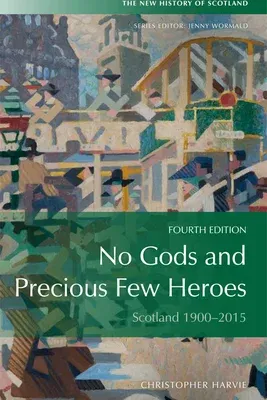A colourful and stimulating history of modern Scotland
This introductory history takes Scotland through two world wars and
subsequent social exhaustion, through the re-energising adjustments
loosely referred to as 'the sixties' to a final endgame of Union versus
Independence. The novel structure of Harvie's history mirrors that of a
grand engineering project, or a structure as complex as the Forth
Railway Bridge: 'three periods of change rendered as towers, and two
great cantilevered arches of life-in-common, over which day-to-day life
proceeds'.
Key Features:
- A final narrative of 'Union versus Independence'
- Thematically rebuilt chapters: Economy/Society/Politics/Culture
- The '60s' reinterpreted
From the APF (JW to ammend)
'When No Gods and Precious Few Heroes first appeared in 1981 Paul
Addison, in the English Historical Review, called Christopher Harvie's
book 'a masterly synthesis of the most important political, economic
social and cultural developments in Scotland's recent past, written too
with great wit and style.' Updated in 1987, after two further editions
in 1996 and 2000 comes this near- total refashioning. 'Starting and
finishing in melodrama', its much-travelled author, after living with
politics and media in Europe, assesses the new parliamentary state
against thirty-five turbulent, vertiginous years. Narrative and episodes
shift from squaddies in Iraq camps to working mothers reclaiming civic
life from failing religion and big crime. Traceable all-too -often to an
untended past, the demand for 'love patience and power to absolve those
tormented' might at last - through most unusual politics - be getting to
it

